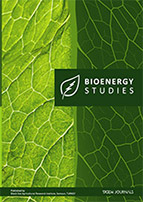Turkish Journal of Fisheries and Aquatic Sciences
2022, Vol 22, Num, 11 (Pages: TRJFAS20857)
Effect of dietary inclusion of camelina or chia oil on fatty acid digestibility, histology, blood biochemistry and molecular biomarkers in juvenile gilthead sea bream (Sparus aurata, L.)
2 Istanbul University, Faculty of Aquatic Sciences, Department of Aquaculture and Fish Diseases, Istanbul, Turkey (34134)
3 Istanbul University, Faculty of Sciences, Department of Biology, Istanbul, Turkey (34134)
4 Mediterranean Fisheries Research, Production and Training Institute, Demre, Antalya, Turkey DOI : 10.4194/TRJFAS20857 Viewed : 1414 - Downloaded : 1524 The present study evaluated fatty acid digestibility, histology, blood biochemistry and gene expression in the gut of juvenile gilthead sea bream, Sparus aurata (initial mean weight, 60.4 ± 4.9 g) fed with iso-proteic (48%) and iso-lipidic (20.7%) diets in which fish oil was partially (60%) or totally (100%) replaced with either camelina or chia oil. Each of the experimental diets was fed to triplicate groups of fish stocked at 10 fish/tank in 150 L tanks for 90 days. Although inclusion of camelina or chia oil altered dietary fatty acid (FA) profile, major differences in digestibility in the individual FAs were not observed. Total replacement of fish oil with camelina or chia oil did not have any effect on blood glucose levels, whereas cholesterol and triglyceride levels were reduced. Results of messenger ribonucleic acid (mRNA) transcription showed elevated levels in the expression of the elongases and desaturases in gilthead seabream fed with diets devoid of fish oil. Fish fed with camelina or chia oil based diets had increased expression in lipolytic and lipogenic genes, resulting in accumulation of lipid droplets in the gut of fish. Histological examination revealed no pathological disorders in the guts of the fish. Keywords : Camelina oil Chia oil Fatty acid digestibility Blood biochemistry Histology
















